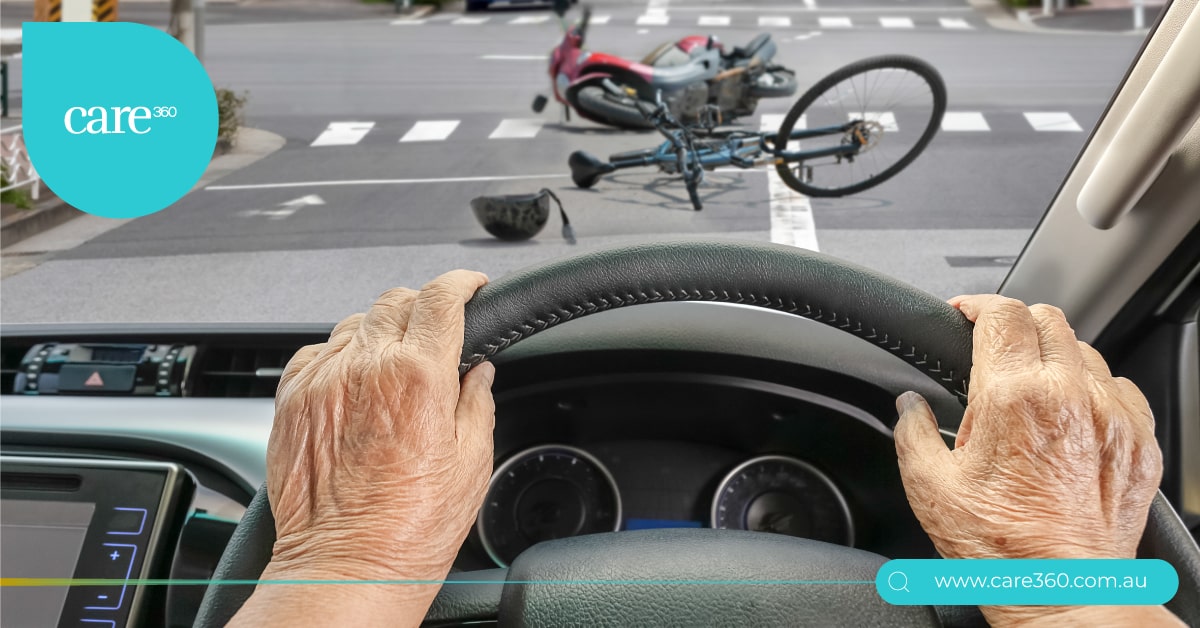
It can be challenging to give up driving, but age related health changes can make driving a bit tricky or even risky. So, when is it time to put away the car keys and explore other means of getting around?
What Leads to Driving Challenges in Older Age?
It’s standard to go through mental and physical changes as we get older, and many of these changes can impact your ability to drive. Your vision and hearing may start to decline, making it hard to spot road signs and hear warning sounds.

You might also become slower to react and make unusual decisions when you’re behind the wheel. Additionally, some prescription medications used to manage age-related conditions can cause dizziness, drowsiness, confusion, and other unwelcome side effects, potentially increasing the risk of a road incident.
Signs Indicating It’s Time to Stop Driving
While on the road, minor errors can have significant consequences for you and those around you. So, if you catch yourself doing any of the following while driving, it might be a good time to consider other ways of getting around:
1. Consistently needing help.
2. Colliding with or scraping against stationary objects, like a parked car, pole, or wall, while parking.
3. Need clarification when interpreting traffic signals or signs.
4. Failing to halt at red lights or stop signs.
5. Confusing the accelerator with the brake.
6. Coming to a halt at green lights.
If you need more clarification about your ability to drive or are worried about an older family member on the road, think about taking a driving fitness test with the licensing authority in your state, such as VicRoads in Victoria.
This way, you’ll receive an impartial assessment of your or your loved one’s driving skills and get professional guidance on the next steps.
If it’s not yet time to completely give up driving, you can make a few minor adjustments to lower the risk of accidents. For instance, avoid driving in low light or adverse weather conditions. Alternatively, limit your driving to familiar routes within a certain radius of your home to avoid Driving Challenges in Older Age.
Finding Alternative Means of Transportation
Living without your driver’s license might entail making some changes, but it should be okay with your lifestyle. Instead of driving to the local supermarket or pharmacy, you could opt for home delivery.
When you need to get out and about, you can ask a friend or family member to drive you, use public transport, or take advantage of a home care service for safe and convenient transportation.
There are plenty of hassle-free options to keep you mobile and independent while minimising potential risks.
FAQs
Here are some common questions and their short answers on this topic.
1. What are the Driving Challenges in Older Age?
Aging can impact vision, hearing, reaction time, and decision-making, while medications may cause side effects affecting driving.
2. How can I tell if it’s time to stop driving and Avoid Driving Challenges in Older Age?
Signs include needing consistent help, collisions with stationary objects, difficulty interpreting traffic signals, running red lights, confusing pedals, and stopping at green lights.
3. What can I do if I’m concerned about my driving abilities or those of an older family member?
Consider taking a driving fitness test with your state’s licensing authority, like VicRoads in Victoria, for an impartial assessment and professional guidance.
4. Are there adjustments to lower the risk of accidents if giving up driving isn’t necessary yet?
Yes, consider avoiding low light or adverse weather conditions, limiting driving to familiar routes, and making minor adjustments to reduce accident risks.
5. What alternative transportation options are available to avoid Driving Challenges in Older Age?
Options include home delivery for groceries and pharmacy needs, asking friends or family for rides, using public transport, or utilising a home care service for safe and convenient transportation.
6. How can I stay mobile and independent without driving?
Explore hassle-free options such as home care services, public transport, and assistance from friends or family for safe and convenient transportation.
Do you need assistance in getting from one place to another? At Care360, we provide a range of flexible home care services.
For more information on Care360, please visit our website www.care360.com.au and to stay up-to-date with our latest news follow us on Facebook & Instagram.





